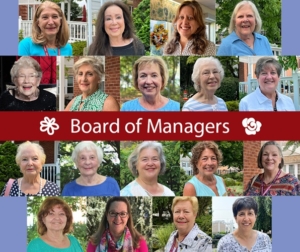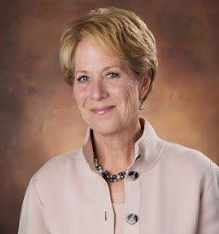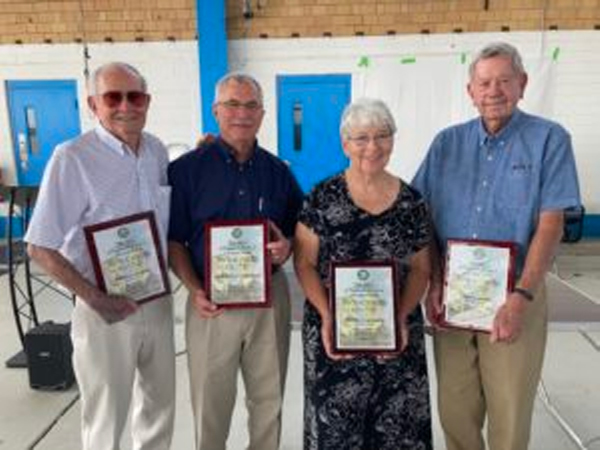From founders to Board of Managers: Homeland’s unbroken legacy of caring
 What makes a house into a home? A friendly smile. A helpful hand. A family feel. A warm environment.
What makes a house into a home? A friendly smile. A helpful hand. A family feel. A warm environment.
Homeland is blessed with a Board of Managers dedicated to creating and sustaining the welcoming feel that has made Homeland a home for generations of residents, their families, and staff.
The Board of Managers is Homeland’s unique, all-women volunteer group. Its legacy dates to the 18 women who founded the “Home for the Friendless” in 1867 to care for Harrisburg’s widows and orphans left by the Civil War. Together, its members tend to the details and little touches that give Homeland its renowned homelike feel — throwing parties, decorating, and engaging with residents.
Today’s Board of Managers members honor their predecessors by infusing their work with a devotion to the mission and a professionalism that gets the job done.
The beginning
The Civil War remains the bloodiest conflict in American history, and after the guns fell silent, Harrisburg, like communities across the country, was left stunned by the staggering losses its families had suffered.
But 18 women representing nine Harrisburg churches vowed to make a difference and establish a “Home for the Friendless’’ to save the widows and orphaned children from life on the streets.
It was an act made more remarkable by the times: in the 19th century, married women could not legally conduct the business functions required. Undeterred, the members of what became Homeland’s first Board of Lady Managers convinced seven prominent men to lend their support and serve as the Board of Trustees.
“This was a very brave group of women,” said Board of Managers Chair Nancy Hull. “They themselves took upon this task to help the orphans, the renegades, and the widows throughout Harrisburg who needed help and support. I’m sure they had to have some fear involved with the people they called ‘homeless,’ but they knew what had to be done.”
The founders smartly circumvented the era’s restrictions on women by leveraging their skills, names, and husbands’ connections to make things happen. Their “Society for the Home for the Friendless” earned its charter in 1866, and those 18 undaunted women formed themselves into the “Board of Lady Managers” to oversee routine operations.
Remarkably, that facility stands today as the centerpiece of what has grown into Homeland Center and the extension of its highly respected services into the community through Homeland at Home; these include Homeland Hospice, Homeland Palliative Care, Homeland HomeHealth, and Homeland HomeCare.
Continuing the mission
The legacy of those 18 women has stood as soundly as its building. The Board of Managers remains the hands-on organizer of renovations, decorating, and events that the residents highly anticipate, from casino days to sock hops, complete with an Elvis Presley tribute artist.
Nothing escapes the keen eyes of the Board members. They dust Homeland’s enormous collection of Hummel figurines, which brighten the public spaces. When residents said they missed French fries—a difficult dish to serve hot and fresh at an institutional scale—the Board of Managers brought in a French fry truck.
“We realize that for the people who live here, the residents, this is their home for the rest of their lives, so we have to make it a home,” Hull said.
Of course, people make guests feel welcomed at their homes, and Immediate Past Chair Alicelyn Sleber recalls the day an ice cream truck came to Homeland. One resident wanted to stay in her room, awaiting a visit from her granddaughter and her boyfriend, but Sleber said, “Well, bring them!”
“Her face lit up,” Sleber said. “She felt good because she could offer something to them.”
With their intense involvement in Homeland’s daily life, Board members work closely with staff to coordinate events, such as holding a spring tea or taking over the Main Dining Room for the spring party (this year’s theme is “Sound of Music”).
Today’s Board of Managers focuses on big goals while never forgetting Homeland’s rich and productive past.
“We owe it to the founders to honor their legacy and to carry on their hopes of what they wanted to accomplish in the community,’’ Sleber said. “They left us the essence of giving back, the gift of our time and effort to meet the community’s needs. We still offer food, shelter, and the necessities, but we’ve enhanced it. I really think that we are carrying on what they started.”

 Board of Trustees member Ellen Brown sees parallels between her life and the history of Homeland.
Board of Trustees member Ellen Brown sees parallels between her life and the history of Homeland. With about 100 invited guests looking on inside the iconic Skyport Aviation Texaco Hangar, four midstate individuals with close ties to the airport were presented with the Federal Aviation Administration’s prestigious Wright Brothers Master Pilot Award – from left, Larry Bashore of Mechanicsburg, Michael Bowser Jr. of Wellsboro, Judy Redlawsk of Etters, and Robert Klenke of Camp Hill.
With about 100 invited guests looking on inside the iconic Skyport Aviation Texaco Hangar, four midstate individuals with close ties to the airport were presented with the Federal Aviation Administration’s prestigious Wright Brothers Master Pilot Award – from left, Larry Bashore of Mechanicsburg, Michael Bowser Jr. of Wellsboro, Judy Redlawsk of Etters, and Robert Klenke of Camp Hill.
